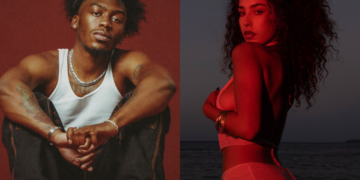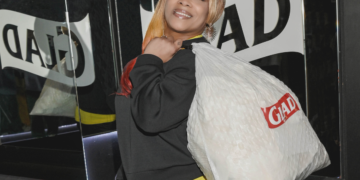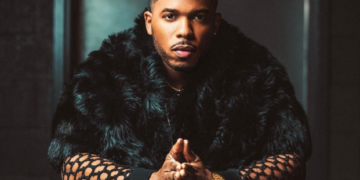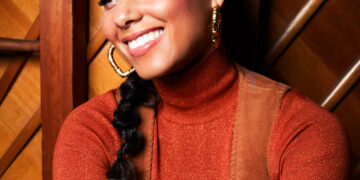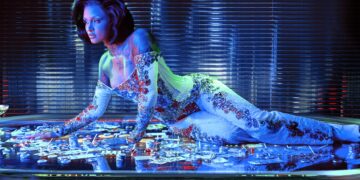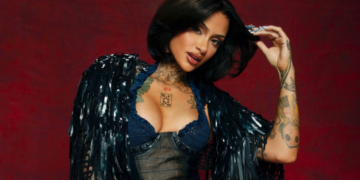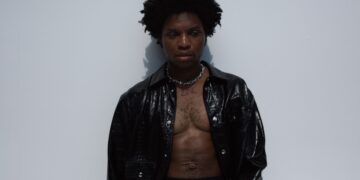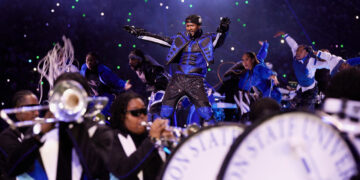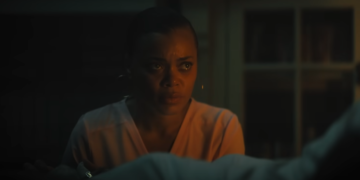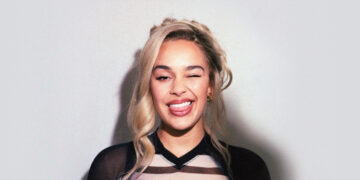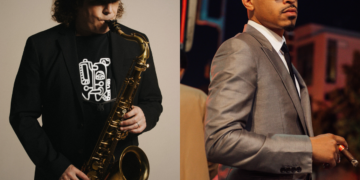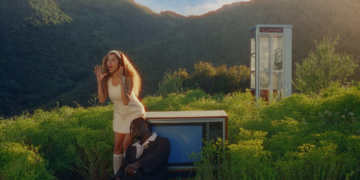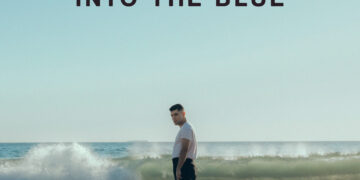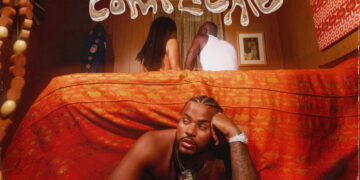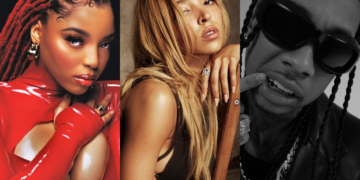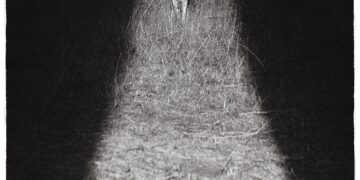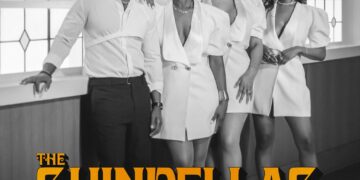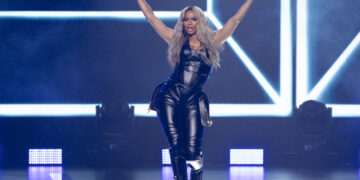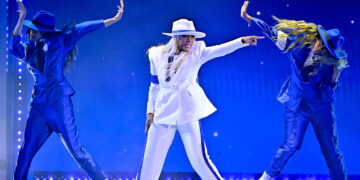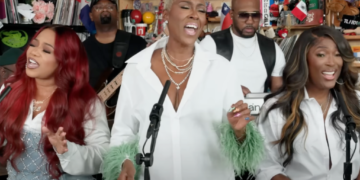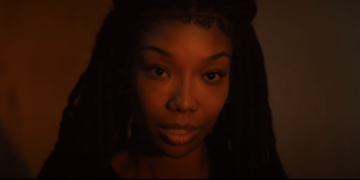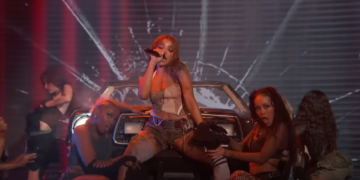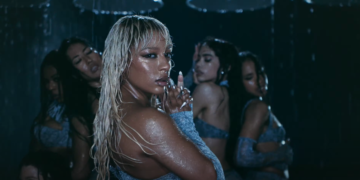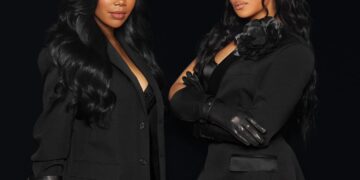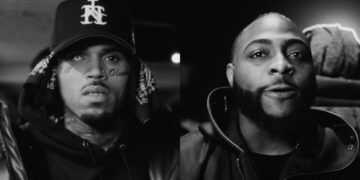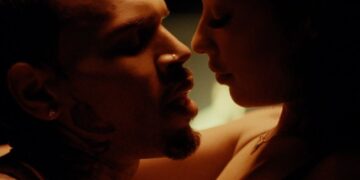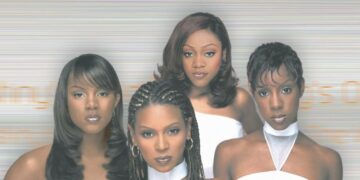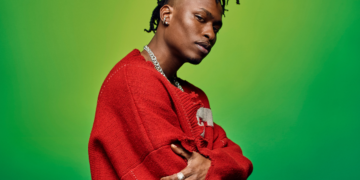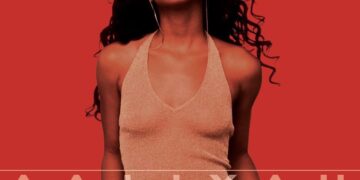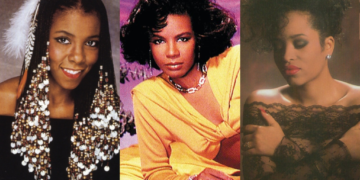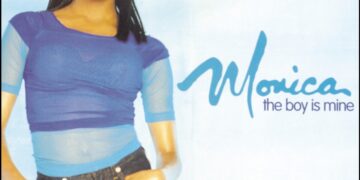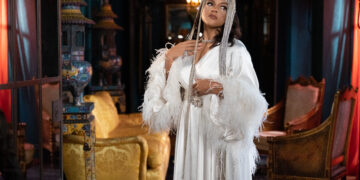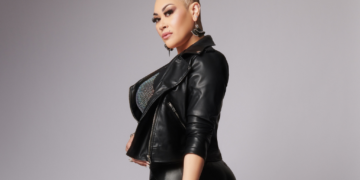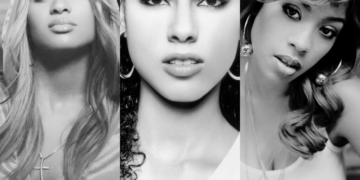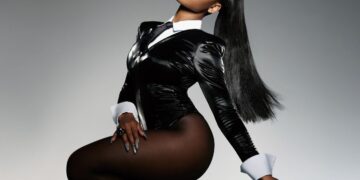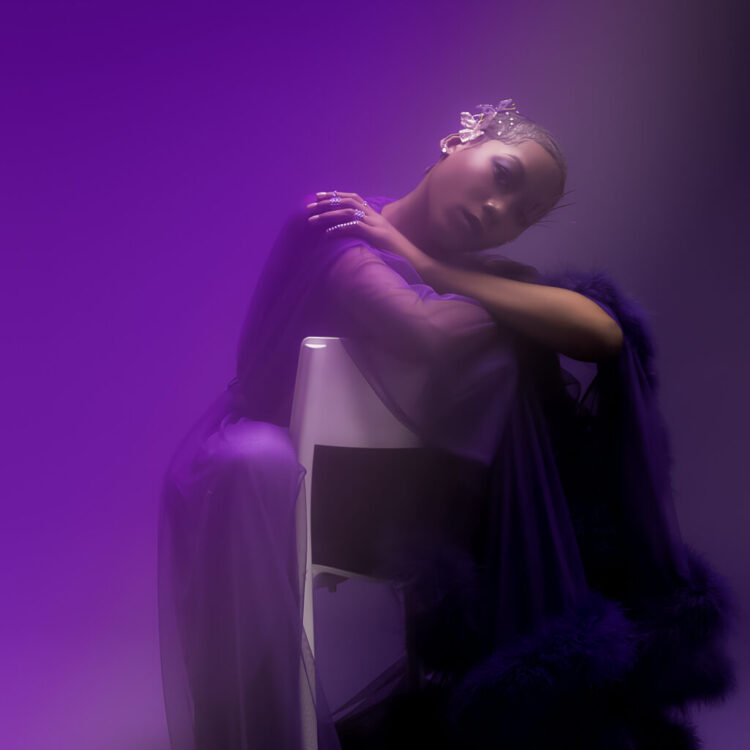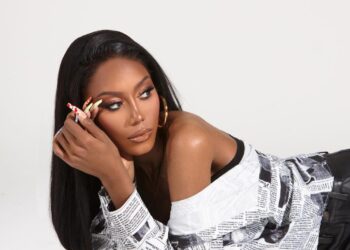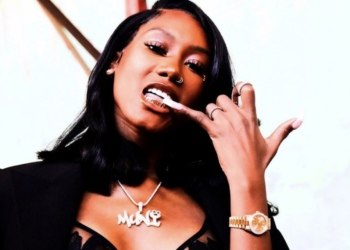Priscilla Renea is telling the truth about everything; not because it’s a moral rule but because it’s part of her artistry. “People [in the industry] don’t tell the truth,” she candidly tells Rated R&B.
“They’re scared. And if they do say something, they get edited. I am so done with the way that people operate in this industry. I have no interest in messing with any of these fake, unappreciative, ungrateful, rude people.”
It’s just three minutes before 11 a.m. on a Tuesday and the gifted singer-songwriter has at last gotten her dial-in information to work successfully for our hour conversation.
“That is so annoying. I promise it wasn’t letting me do it,” she laughs. “Don’t you hate that when you be telling somebody [something isn’t working] and as soon as they looking at you, it works?”
Renea sets a relaxed tone for our chat. Her speaking voice, though, is rather raspy after a recent performance in Los Angeles. She attributes her unexpected aliment with the venue’s most used stage prop.
“I think I might have picked up something from that microphone,” she believes. “Sometimes when I sing my mouth touches the microphone. I’m going to have to start bringing my own microphone everywhere I go.”
The show was connected to her new album Coloured, a genre-blending collection of records that comes nearly a decade after the release of her debut LP, Jukebox. During her 10-year break, Renea was penning hits for artists like Rihanna, Miranda Lambert and Chris Brown.
However, she didn’t anticipate being a songwriter full-time. Renea charges her previous label executives with “sabotage.” She says they wanted to her invest more time in writing songs for others artists rather than being an artist herself.
“Well, don’t think I wasn’t trying to put out albums before,” she says. “It’s just the industry man. It’s not what people think it is. It’s such drama .. and like power trip and control.”
Renea was sold dead leads, too. “They say, ‘If I get a number one, I’ll be able to make my own album.’ I got a number one in the UK but that doesn’t count. They say, ‘If I get a number one on the Billboard [Hot] 100, I’ll be able to make my own album.’ I got a number one with “Timber” [by Pitbull] but ‘That’s not a whole song. That’s just a hook.’ It was never enough.”
She continues, “I didn’t realize when I came to L.A. everybody was looking at me like, ‘She’s going to make us rich.’ Growing up, I didn’t realize that everybody couldn’t [write songs]. I thought everybody could do that.”
Renea shortly realized her innate songwriting abilities was something other artists and songwriters admired through envious eyes. “I didn’t even do anything. I just wanted to make music,” she says innocently.
“I’m up here cooking for them, being friends with them, writing songs with them and secretly they hate me. And for a very long time I was just out here giving my gift away.”
But she had to make use of her songwriting abilities to get out of debt she acquired shortly after moving to L.A.
“I had to just grind. So for like two years, every day, I would do five sessions. I would start at 11 a.m. and wouldn’t get home until like 7 a.m. sometimes,” she remembers.
“I would at least write two songs in every session. It was one point where I had [sessions] on one street. It had two studios. Each studio had five rooms. I had every room at both studios in one day. I don’t even know how I did that. I don’t even remember half of the songs. [But] when you really want something, you’ll do whatever it takes.”
Four years after releasing Jukebox and after a full-length project was scrapped, Renea was hyped to release what was expected to be her long-awaited second album. Yet, her lead single became a popular hit for another rising artist. “I had a song called ‘V.S.O.P.’ that was supposed to be the first single,” she says.
“My publisher took the song and played it for K. Michelle because they did not want me to put my album out. They wanted me to stay writing songs for other people. So, the second album ended up shelved because I didn’t have a first single. I was like, ‘What the fuck? I don’t owe anybody anything. Why won’t they write their own songs? Why do I have to keep doing this?’ I was devastated.”
Renea says after “everybody counted me out and everybody left me for dead,” she knew she had to “learn how to survive” on her own while the spotlight wasn’t on her. From there, she went back to the drawing board to record an album deeply rooted in a genre that she grew accustomed to listening to as a child — country.
Recorded in Nashville, the heart of country music, Renea bridged together producers from the world of hip-hop and R&B (Honorable C.N.O.T.E, Curtis “Sauce” Wilson, Theron Feemster, Brett James) with hit country songwriters (Ashley Gorley, Kevin Kadish) to create the unsettling stories that are told on Coloured.
What inspired you to record an album rooted in country and soul?
Growing up, my uncle Kenny’s sons were my best friends. We used to do everything together. We were trying to listen to Eminem, Juvenile and Lil Bow Bow but he would make us watch CMT and would have country music blasting out of his truck. My mom would play country music as well. You know Billy Gilman and the more storytelling [songs].
Then MTV started playing like Faith Hill and Shania Twain. So, as I was growing up, I started actually liking country music. When it was time for me to make my album, I really sat and thought like, “Okay, what is the most natural for me?” Then I thought, “You know what? Every song that I have ever written has been a country song if you think about it.”
Rihanna got on the CMAs singing “California King Bed” with Jennifer Nettles from Sugarland. “Don’t Wake Me Up” [by Chris Brown] is a country song. Freaking “Timber” [by Pitbull] is a country song. It might have been produced in a pop way but they’re all country songs.
The album’s opening track “Family Tree,” which gives hints of Nina Simone, is a personal story about you being unsupported by family in your teenage years. Have you attempted to go water this tree and restore those broken relationships? Or have you let the leaves fall and the roots die?
I love my family. I can’t even say nothing bad about my family. My childhood was incredible up until I was 14. It was rough. I think maybe because my mom thought I was going be this bad teenager [because] my older brother was a terror. I didn’t do anything until I got tired of her beating me, whopping me and punishing me for nothing. She just doesn’t want to talk about it. I tried a couple of times and she would be like, “I did the best I could.” And I’m like, “Nobody said you didn’t. I’m just trying to tell you how it affected me. In the grand scheme of things, was that necessary?”
Now, we’re good. As she’s getting older, we talk every day. My biological father lives in Malaysia. I haven’t seen him since I was like 14. It might seem mean but I don’t really care to see him. He’s literally all about himself. I called him one time on Christmas when I was like 17-18. I was like, “Hey, how are you?” And he’s like, “I’m good, how’s the weather.” I’m like, “Really, that’s what you say to me?”
I’m just going to let you have it because clearly you don’t want to remember us. One thing I never wanted to do was be somewhere where I’m not wanted. I realize that I don’t judge people and I don’t condemn people. I just choose not to let you be in my spear. I’m going to just give it to Jesus.
On “Gentle Hands,” you’re casually talking to God about your ideal man. What inspired this record? Did God fulfill any of those wishes for you?
I took a Cruella de Vil notebook that one of my fans brought for me and I filled the page up from top to bottom with “I want him to be a leader like Obama. I want him to be good at building things like my father.” The only thing that I did not put was what he would look like. I really wasn’t focused on that. I wanted him to be a good person. I forgot about [the notebook] and put it in my cabinet. And I met my husband. We started talking because he started training me and then I actually started liking him.
After we started spending time together, we got married within a year. I think I was already married when I was cleaning out the cabinet and I found the book. I started looking at it and I was like, “Oh my God. That’s crazy. He has everything on this list.” So, I feel like anybody can [make a list]. It’s not limited to one person. God is going to give you what you want. He’s not going to interfere with your will. Ever.
It’s clear that you have grown musically and vocally since your 2009 album Jukebox. Was there ever a time you were nervous or doubted yourself about evolving as an artist during your hiatus?
No, I just knew I have fans out there. I had so many fans from YouTube and I didn’t realize the power of that. I didn’t realize what Instagram would become or what direct-to-consumer access would mean in the years to come. I was one of the first YouTube singing superstars. I didn’t know what that meant back then. To me, it was like an escape — a double life.
I had my regular life and then I had my internet life. It didn’t occur to me that one day they would become the same thing. I kick myself sometimes that I didn’t maintain that relationship with my YouTube fan base. Honestly, my record label and guys I was signed to made me feel like it was stupid. “Don’t nobody care about that YouTube shit.”
I listened to them like a dummy. So, I stop and deleted all my videos. People be like, “Where are the videos?” And I just cringe every time they ask me because I’m like, “Oh, I’m so sorry. I deleted them.” I have some of them still there. I think I might make them un-private so people can find me again. Some of them are gone forever [though].
Did you learn anything from that experience?
It taught me that you can never allow somebody else to dictate what is dope or what works for you. I used to listen to the people who were around me because I just thought, “because they’re in charge of my situation, they must know what they’re talking about or what’s going on.” Nobody knows more of what’s better for you than you. Your job as an artist is to tell your truth and make it sound good. That’s it.
Many female artists of color like – K.Michelle, Keke Wyatt and Fantasia – have expressed their love for genres outside of R&B such as country. Yet, the industry expects them to stick to one format. How does it feel to be a black woman, living in these times, owning your existence in a genre not politically meant for you?
I don’t care about what anyone thinks about what I’m doing. Country music comes from gospel music. And it’s no secret that we — Blacks, African-Americans, negros or colors — created a lot of things that white people are benefiting off from today; and they’re allowed to enjoy. There’s a lot of things that over the history of our existence that Europeans, white people tried to erase from history because they don’t want people to know how evil they have been. Like that lady who called the police on an eight-year-old, trying to duck behind a wall. She is the perfect example of how they do. They do something foul and they don’t want anybody to know what they did.
I’ve walked into all-white places and got on the stage and say, “I’m a country singer.” And they look at me like, “Who the hell is this n****r?” I can see it and I can feel that they are not feeling it. I will point to a poster and say, “See that girl, Carrie Underwood? I wrote her last number one.” And they are like, “What?” Then I start singing and see the sparkle in their eyes. Then they come up to me like, “Oh my God.” So I know it’s not about my gift. It’s about the prejudice and the pre-judgment. You prejudged me but when I open my mouth I broke down all the barriers in your mind.
So because I know that my voice has the ability to do that to people, all I need is the opportunity to sing. And if anybody ever tries to shut me up, I know what’s up. I am fiercely perfecting my art. I have to make sure that nobody ever has access to me enough to where they can shut my mouth. I’m going to keep singing and keep being vocal and keep telling my story for as long as I can.
Mariah Carey recently showed love to you and your project on Twitter. How did that make you feel?
Mariah is like my big sister. We’ve known each other for a couple years. Our relationship has started to deepen recently. She is incredible. She is a beast. Vocally, she is amazing. She’s such a sweet person. It’s almost unbelievable how nice she is. She’s very much still a real person and she said she was going to [shout me and my album out].
I was like, “Okay, yeah that would be great.” But that’s Mariah Carey, though. It would be dope if she did but if she doesn’t, it’s whatever. And she actually did it. I was like, “Oh my God. Yes, that is so awesome.” I think she understands this that [people] won’t wrap their arms around you and embrace you until someone else does. It’s like, “I can’t get a job because I don’t have a resume. And I can’t get a resume until I have a job.”
Follow Priscilla Renea on Instagram at @PriscillaRenea. Also, make sure to download her new album Coloured.

